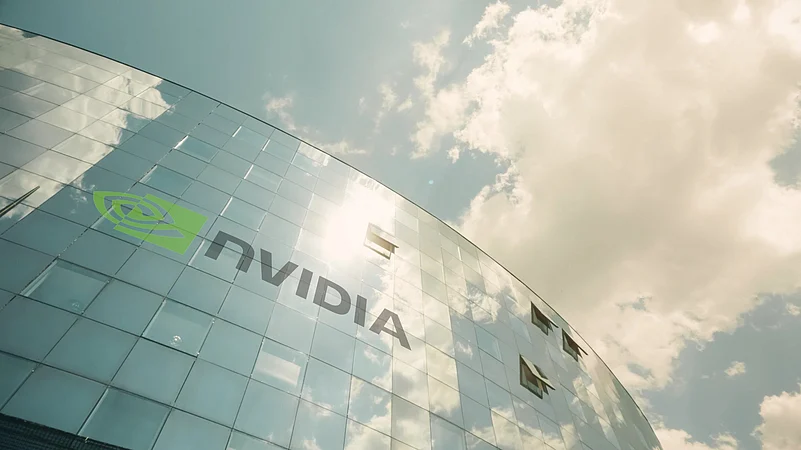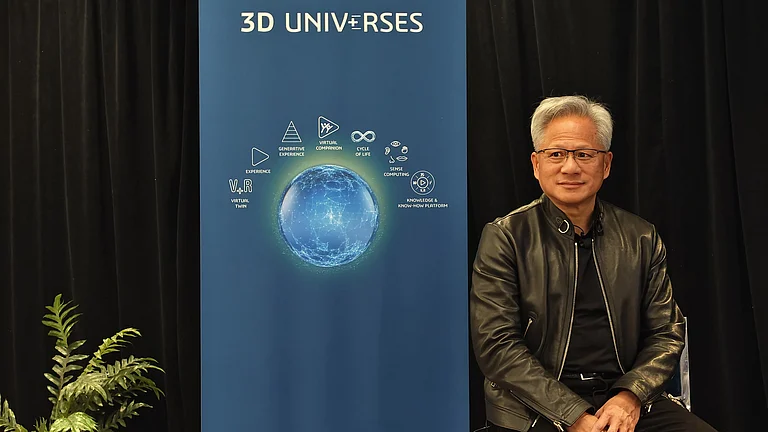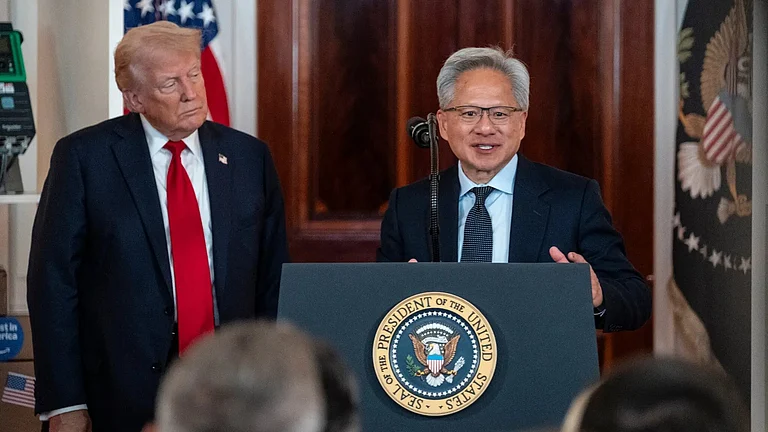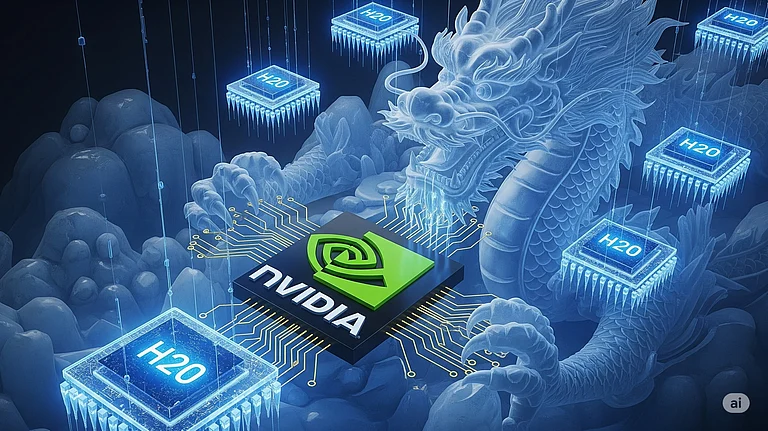The skyrocketing demand for AI has become a key topic of discussion among investors and nations alike.
SoftBank Group’s founder, Masayoshi Son, believes that AI can run households in the near future. The investment firm has also reportedly invested billions of dollars in this field. Some of its notable investments are AI start-ups OpenAI and Perpliexity AI.
The growing optimism in the AI sector is visible in India as well. Chipmaking giant Nvidia CEO Jensen Huang’s recent comment that India should manufacture its own AI has added to the optimism.
“Nvidia appears bullish on India, actively seeking partnerships and exploring opportunities to provide its technologies. Their support has the potential to benefit not only large corporations but also start-ups associated with them, helping to build commercially viable AI models in India,” said Sunil K. Shekhawat, CEO of SanchiConnect, a deep tech enablement network.
The chip giant recently collaborated with several corporations and start-ups. This includes Infosys, TCS, Wipro, Tech Mahindra, Reliance, Tata Communications, Accenture and the list goes on. With regards to start-ups, the company has collaborated with Gnan.ai, KrutrimAI, Sarvam AI, and others.
Nvidia’s India Strategy
In September 2023, Prime Minister Narendra Modi and Nvidia CEO Jensen Huang met to discuss the potential of AI. While speaking at a conference in Bangalore last year, Huang said, “You (India) have the data; you have the talent.”
The company also inked a deal with Reliance in 2023 to build large language models. As part of the partnership, Nvidia would supply Jio with complete AI supercomputer technology. This would include CPUs, GPUs, networking and software tools to build AI models. The company also collaborated with Tata in the same year to develop AI computing infrastructure the same year.
Nvidia’s focus on India also highlights its intent to penetrate into the market. Neil Shah, vice president of research at Counterpoint Technology Market Research, told Bloomberg that India is the only market remaining for the chaip gain and hence it isn’t surprising that Nvidia wants to put multiple eggs in that basket. China, for instance, has advocated for the usage of local chips over those made by Nvidia.
Chinese authorities have informally asked AI companies to use AI chips made at home as per a South China Morning Post report published in October 2024. Additionally, the US took steps to ban certain AI chips in 2023. In an SEC filing, Nvidia highlighted that the US government put export restrictions on two of its chips—Nvidia A100 and H100 GPUs—to China for security purposes.
With Nvidia’s backing, AI start-ups in India are optimistic about the future. Indian robotics and automation company Addverb, which recently collaborated with Nvidia, highlighted that this partnership is crucial as it allows them to refine their AI models and robotic technologies.
“Collaborating with NVIDIA has been pivotal for us. Their AI and robotics platforms provide us with significant computing power, enabling us to enhance our automation solutions dramatically,” said Sangeet Kumar, CEO & Co-founder, Addverb. The company says that they can leverage Nvidia’s Jetson Orin NX (an energy-efficient AI computing module) and TensorRT (an ecosystem of APIs) to improve their robots' performance in warehouse environments, allowing them to pick, sort and deliver with greater precision and efficiency.
Experts have also highlighted that start-ups can now gain an advantage by using the infrastructure of AI. “Start-ups in this space gain a substantial edge, as Nvidia’s scalable AI chips empower them to tackle compute-intensive challenges, from fraud detection to predicting customer needs,” said Joydip Gupta, Head of APAC, Scienaptic, a Bengaluru-based AI start-up.
Gnan.ai is another AI start-up that built a speech-to-speech AI model in collaboration with Nvidia. The model that can process 10 million voice interactions daily was built using Nvidia’s NeMo platform. The platform is an end-to-end platform that helps build custom generative AI—including large language models (LLMs).
“By combining NVIDIA accelerated computing with our conversational AI expertise, we’re helping businesses achieve scale and efficiency with a business impact of over $6 billion and that’s truly revolutionary,” said Ganesh Gopalan, CEO of Gnani.ai, in a statement.
India Lags Behind at Less than 2 Per Cent of Global Capacity
For AI start-ups to grow, infrastructure becomes pertinent. That’s a space where India is lagging behind. Speaking at StartUp Mahakumbh in March this year, NVIDIA Asia South MD Vishal Dhupar said that the country’s computing infrastructure is less than 2 percent of global capacity. “India today is approximately sub-2 percent as compared to the US and China combined is closer to 58–59 percent,” he said.
Scarce Graphic Processing Units (GPUs) have been a problem in India. That’s why the Indian government was reportedly in talks with Nvidia to source GPUs from the USA. To simplify, a GPU is a hardware component that has the capacity to execute massive mathematical problems.
That’s where Nvidia’s collaboration becomes important. “Additionally, advancements in computing infrastructure can enhance the capabilities of start-ups. Nvidia’s advanced platforms, such as Jetson and Isaac Sim, provide us with essential computational resources and simulation tools, empowering startups to effectively develop and test their AI solutions,” said Kumar.
AI start-ups in India struggle with various challenges, including shortage of talent, high implementation costs, lack of patent capital, regulatory uncertainty, and more. “While there’s been progress with frameworks like the Account Aggregator, regulations around data usage, credit discipline, and fair lending remain evolving,” said Gupta.
This uncertainty makes it difficult for AI companies to navigate compliance, creating a constant need for adjustments and adaptations that can slow down innovation, he added.
While challenges remain for the sector, Nvidia’s collaboration is being looked at as a boom for India’s AI sector. The country today has 6,989 artificial intelligence start-ups in India, as per data platform Tracxn. This marked a decline of approximately 91 percent sequentially, according to Tracxn. It remains to be seen how AI start-ups in India navigate as the AI boom keeps increasing.
































